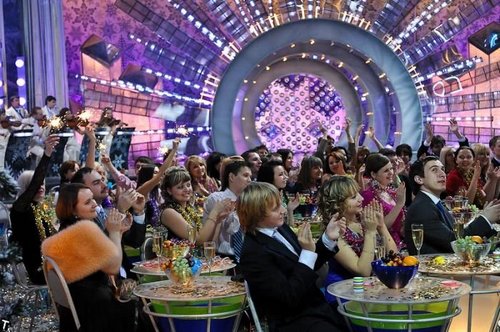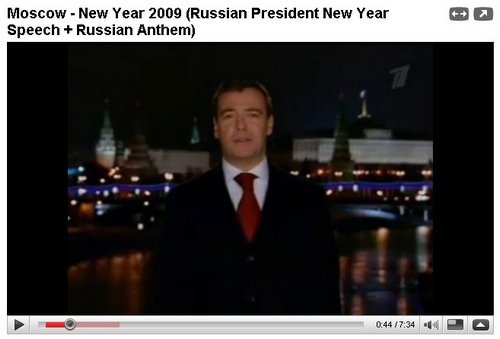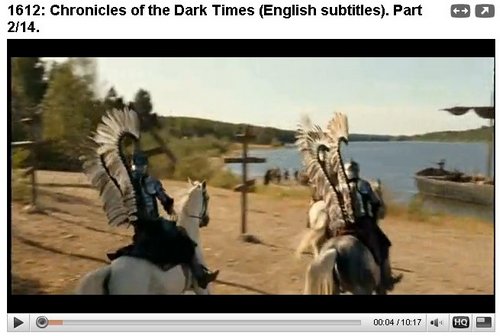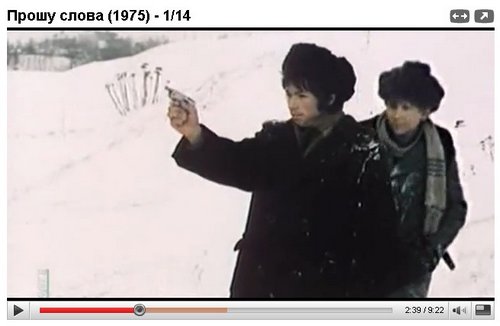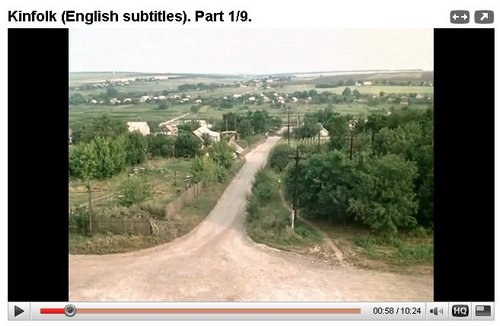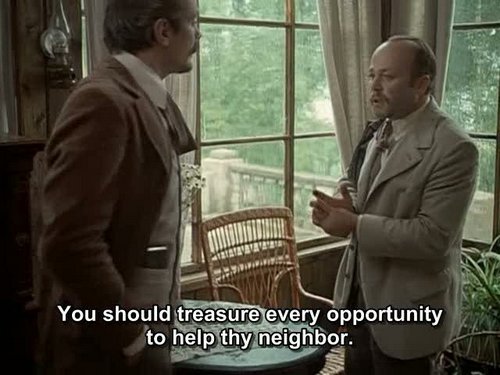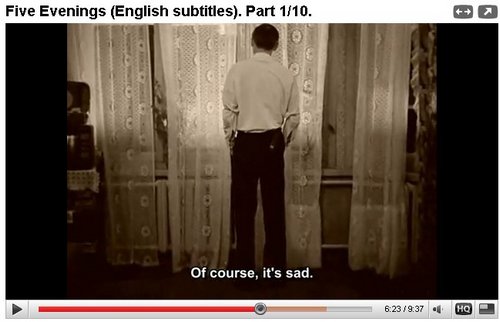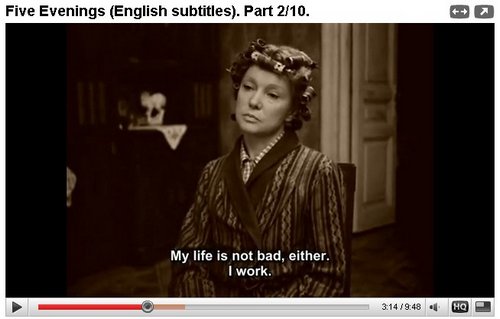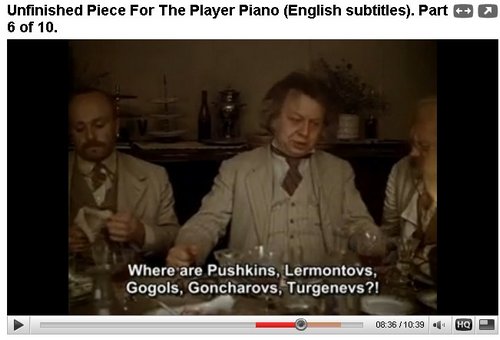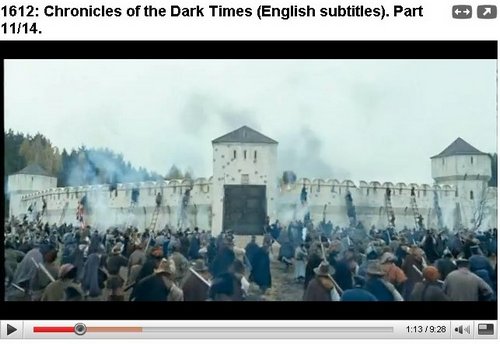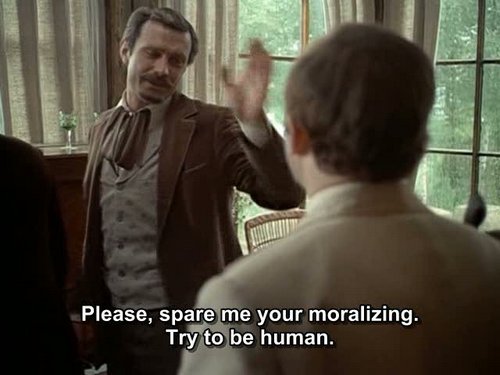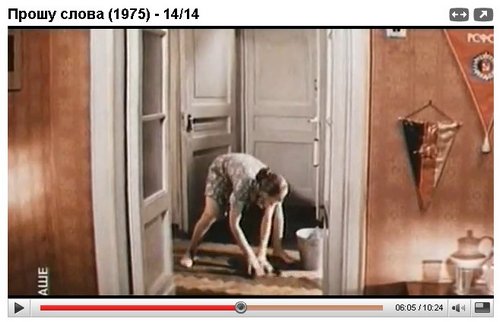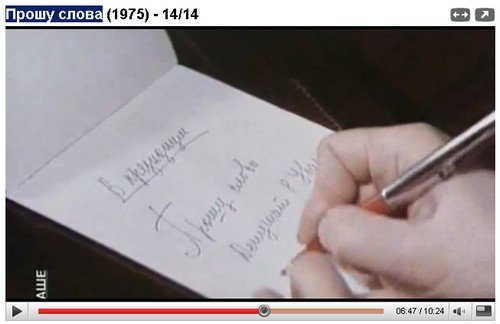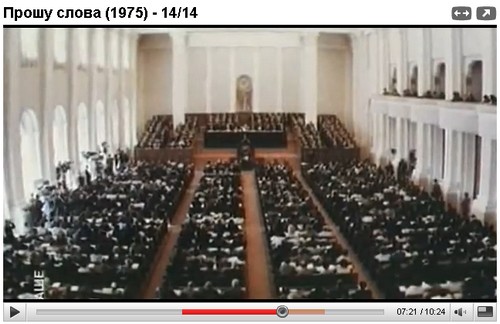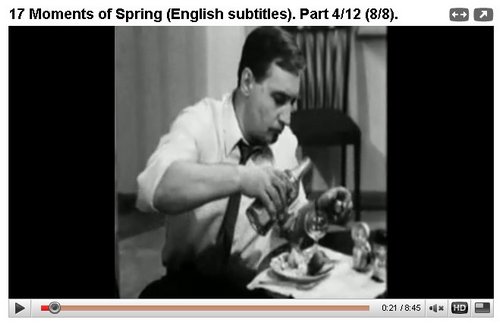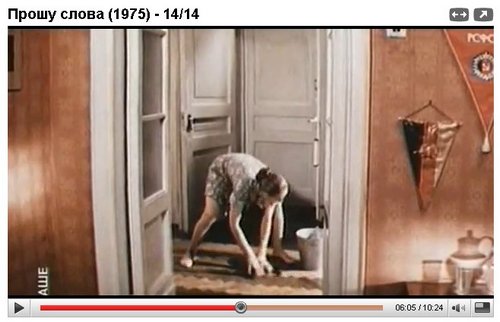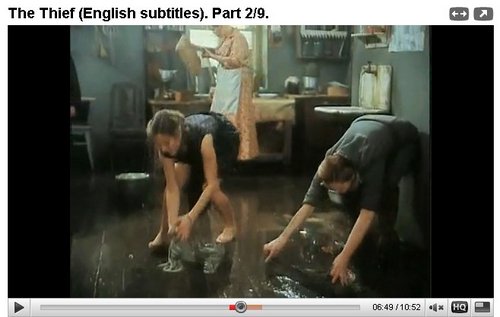С Ðовым  Годом!
Before midnight we watched some of the music show that was on RTR Planeta. It has been a while since I watched one of those. This was a special one for New Year’s.
I was going to make a comment about how it’s like the one that English Russia talked about a few days ago, when it pointed out that the show actually recorded over a long period, several days in advance, and that most of the fruit is fake and the champaigne is really lemonade. But that wasn’t news to me. I had figured out long ago that these shows couldn’t possibly be live. When their turns came, the performers would need more time to go from the audience to the stage to perform, for just one thing.
Then I realized that tonight we were watching the very same show English Russia had told us about. English Russia had given us a few photos of in advance. One of them is shown above.
It was interesting to watch for people I recognized. Alla Pugacheva was in the audience. And I thought I saw Dmitri Dyuzhev a couple of times, but if he was one of the performers I missed it. Some of the singers I’ve seen before — some of them have distinctive voices — but I don’t know their names.
In the movie Ironiya Sudba-2, Vladimir Putin gives a brief greeting at midnight on New Year’s Eve. I wondered if there would be the same thing tonight. Sure enough, when the time came the music stopped so Dmitri Medvedev could give a little speech.
Now that I’ve listened to it, I’ve seen more of him on TV than of Barak Obama. Maybe if you count only the words I understood, it’s about the same as what I’ve seen of Obama.
Some wishes for the New Year:
May whistleblowing police officers like Alexey Dymovskiy be able to speak out on YouTube without being fired and prosecuted. May whistleblowing bloggers like Steven Frischling be able to reveal the silliness of government regulations without being threatened and intimidated by the TSA.
May dissidents like Lyudmila Alexeyeva in Russia and the Tea Party Protestors in the United States have reason to be proud to live in countries that are liberal enough to allow them to take to the streets to criticize their governments.
